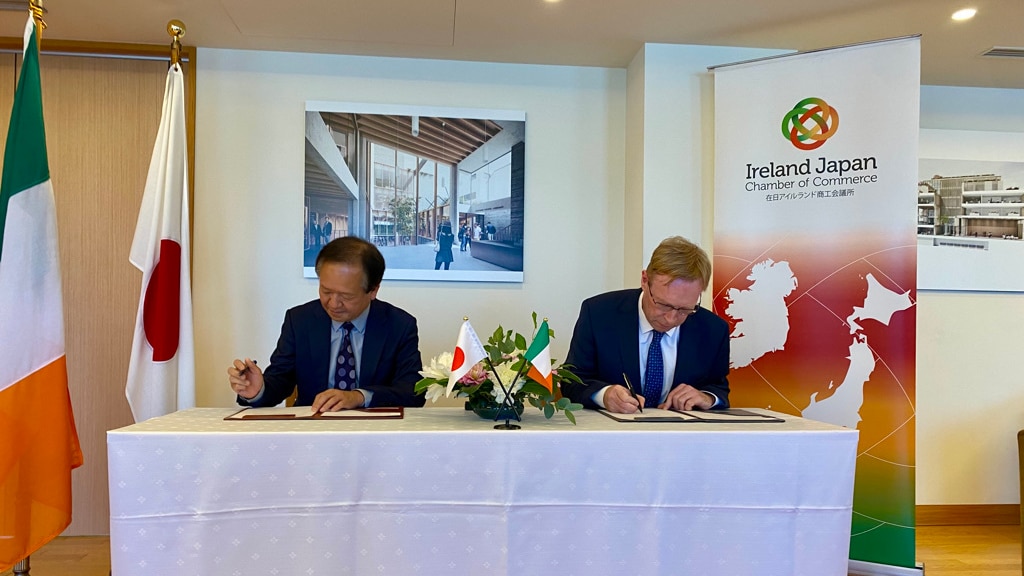
Nikkei has been a Knowledge and Information Partner of The Ireland Japan Chamber of Commerce (IJCC) since July 2022. They’ve been collaborating to help the Irish business community identify, monitor and seize opportunities in Asia. We interviewed Mr. Eamonn Murphy, Vice President of the IJCC on their view on the Asian market.
Q1. Tell us briefly about the association & your members’ profile
The Ireland Japan Chamber of Commerce is an organization based in Japan that supports the strengthening of business relationships between Irish and Japanese companies. We have over 100 members involved in a wide array of sectors, from entrepreneurs to large multinational organizations. We become a chamber of commerce in 2008 but we trace our beginnings to 1973.
Q2. How have you seen the importance of the Japan & Asian market change within your member organisations over recent years?
The trend has generally been in one direction with Asia becoming a key growth market for Irish companies. Irish companies have always been focused on expanding overseas as their domestic market is relatively small. In 2020 Ireland’s exports to Japan totalled approx. 700 billion Japanese yen. And within Asia, Japan has always been a key market due to the size of the Japanese economy and the reputation of being able to build long-lasting, mutually beneficial relationships in the market.
Q3. What made you motivated to consider a partnership with a media subscription service like scoutAsia? It would be great if you could share your challenges.
With the quantity of information and data available today, our members are always looking for high-quality business and economic information to enable them to keep up to date and make informed business decisions. That’s why we reached out to Nikkei and scoutAsia.
Q4. Which part of scoutAsia web app do you think your fellow members can benefit from and what do you expect from the partnership?
Our members will benefit from being able to keep abreast of the latest developing news while at the same time being able to drill down into regions or sectors to get more detailed information and analysis. And I enjoy the personalized notifications.
Q5. Why is it important that business leaders like your members read local news & get regional perspectives from news articles? How does this help them, in your opinion?
For our members that have come from Ireland or other countries to Japan, being able to get access to high-quality regional news from a provider they can trust is vital. They need it to understand the context they’re working in to do business effectively in Japan.
Company profile
- Company Ireland Japan Chamber of Commerce(IJCC)
- Industry Business Services
